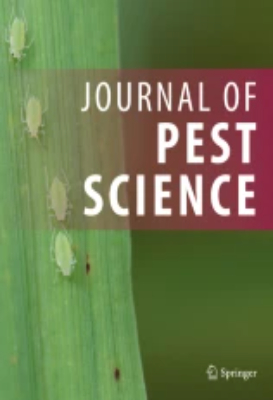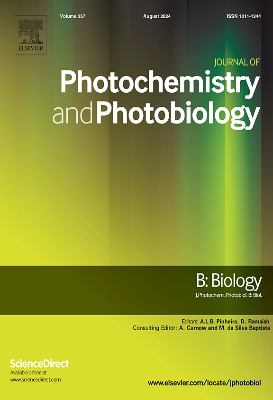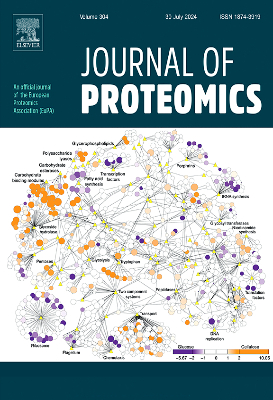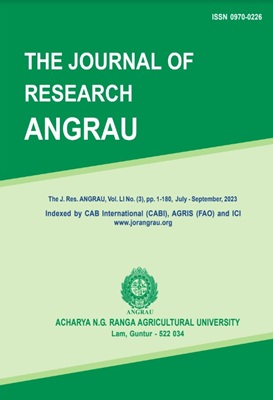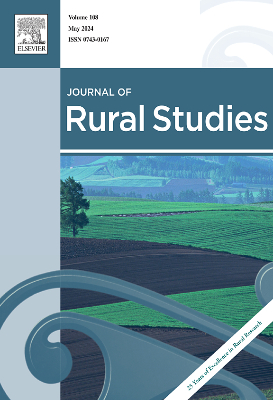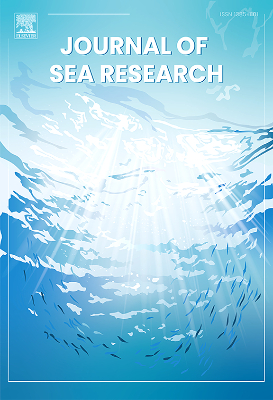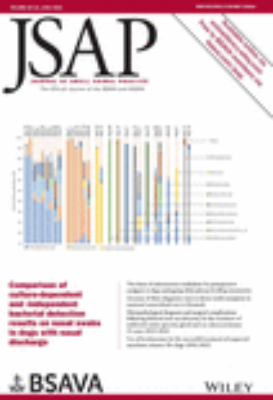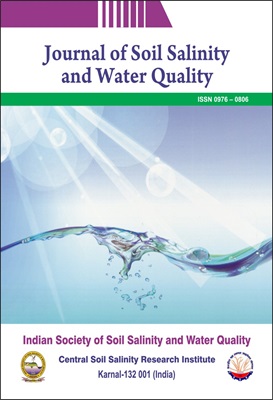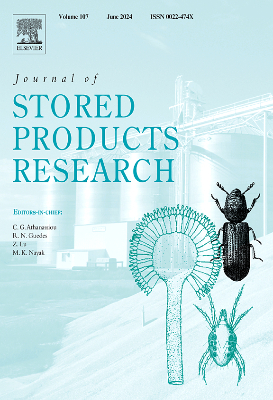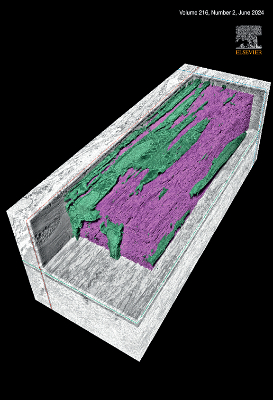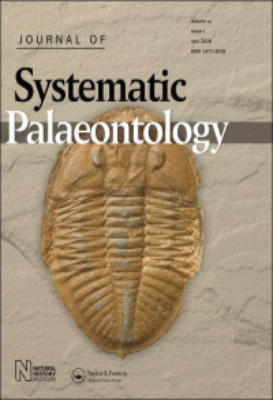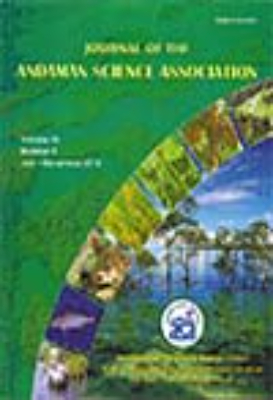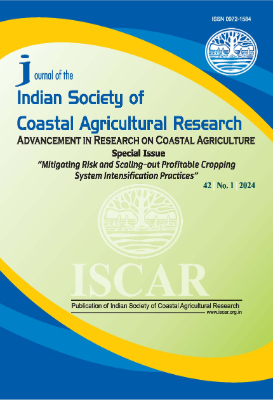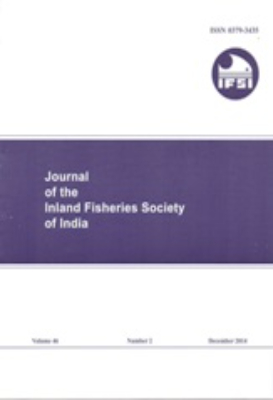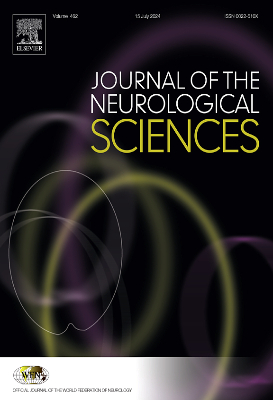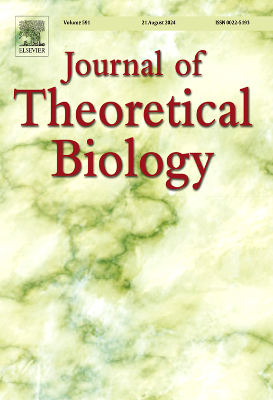eJournals
Journal of Research ANGRAU
The Journal of Research ANGRAU is the University Publication (quarterly) of Acharya N G Ranga Agricultural University (ANGRAU) and has been published since 1973. This journal is celebrating its 50th volume in the year 2022 and has started only online issue since 2022. The Journal is a double-blind peer-reviewed journal that seeks to encourage research in agriculture, horticulture, agricultural engineering, community science/home science and social sciences (agricultural extension and agricultural economics). The JOR ANGRAU provides a platform to publish original research work in all agricultural and allied sciences. JOR ANGRAU supports research articles which explore innovative experimental approaches and empirical studies. The Journal recognizes works across the above disciplines and therefore especially values meta-disciplinary analyses that will provide a foundation for communication across these academic fields and disciplines. The journal has a NAAS rating of 4.27 (2024) and is a UGC-CARE-approved journal. The Journal is Indexed by CAB International (CABI), AGRIS (FAO) and Indian Citation Index (ICI). Journal has a presence in Google Scholar. The Journal publishes quality research papers in Agriculture and allied sciences after meticulous double-blind peer review process.
Journal of Sugarcane Research
Focus and Scope Journal of Sugarcane Research is a bi-annual periodical of the Society for Sugarcane Research and Development, located at ICAR-Sugarcane Breeding Institute, Coimbatore, Tamil Nadu (India). It publishes original research articles, short research communications and review articles on basic and applied aspects of sugarcane agriculture (sugarcane improvement, genetic resources, genetics, cytogenetics, biotechnology, biochemistry, agronomy, sugarcane physiology, sugarcane soil and chemistry, microbiology, sugarcane entomology, sugarcane pathology, mechanization, economics, etc). All contributions to the journal are reviewed by referees and are selected on the basis of quality and originality of the work. Peer Review Process The objective of JSR is to publish original research articles of high standards. To ensure the quality, all articles in this journal are published after initial scrutiny by the Editorial Board followed by a review by panel of experts (referees) in the concerned discipline. The Editorial Board of JSR consists of one Chief Editor and two Associate Editors. In addition, members of well-known repute (from India and abroad) in the field sugarcane research and development are nominated by the Executive Council (EC) of the SSRD, who will assist in the scrutiny of the articles and publications of the JSR. The Chief Editor will act as Convener of the Editorial Board. The Editorial Board and Referees advise the Chief Editor, who is responsible for the final decision to accept or reject the article. For reviewing one research article, two referees in the concerned discipline are chosen from the JSR reviewer database. The trimmed manuscript containing title and abstract alone are send to the referees to obtain their consent to review the article. Then the whole manuscript (excluding authors name and affiliation) is sent to the reviewers and he/she is asked to evaluate whether the manuscript is: (i) original as to thought and method, (ii) methodologies followed are sound and acceptable, (iii) results are presented unambiguously, (iv) results are discussed with supports and in the light of previous relevant works, (v) conclusion drawn is valid and acceptable, (vi) follows appropriate ethical guidelines, especially as concerns plagiarism (copying text or results from other sources) and self-plagiarism (duplicating substantial parts of authors' own published work without giving the appropriate references), (vii) adds to the knowledge and development of the field of sugarcane agriculture. Language correction is not part of the peer review process, but referees are encouraged to suggest corrections of language and style to the manuscript. In the normal course, the Chief Editor will make final decision to accept or reject the manuscript or ask the author for a revision may be made, on the basis of referees' comments. Should the referees' reports contradict one another or the report of one referee is unnecessarily delayed, the opinion of third referee will be sought. In some cases, the Chief Editor at his discretion may accept or reject the article on the basis of only one referees' report. The Editor's decision will be communicated to the corresponding author along with referees' comments. The time required for the review process is dependent on the response of the referees but the typical time for the first round of the refereeing process is approximately 4 to 5 weeks, with a maximum of 2 months. Simultaneous submissions of the same manuscript to different journals is not accepted by JSR. Manuscript will be rejected outright, on grounds of lack of novelty, insufficient conceptual advance or major technical and/or interpretational problems or the contents outside the scope of the journal. All submitted manuscripts are treated as confidential documents till they are published. The Journal of Sugarcane Research follows ?double blind? reviewing process, in which the identity of the referees remain unknown to the author(s) throughout and following the refereeing process and the identity of the author(s) is unknown to the reviewers. COMPLAINT POLICY: Complaints regarding published material will be accepted within 12 months from the first publication date. In case of any complaint, the authors are required to submit their complaints along with their reasons/valid proof to the editorial office at editor.sbi@icar.gov.in Publication Frequency The journal is published twice a year in June and December respectively. Open Access Policy This journal provides immediate open access to its content on the principle that making research freely available to the public supports a greater global exchange of knowledge. Publication Ethics and Publication Malpractice Statement JSR is committed to ensuring ethics in publication and quality of articles as defined by the Committee of Publication Ethics (COPE). Publication Ethics and Publication Malpractice Statement The following are the standards of expected ethical behavior for all parties involved in publishing Journal of Sugarcane Research, including the editors, authors, and related parties. These guides are based on existing COPE's Best Practice Guidelines for Journal Editors (https://publicationethics.org/resources/guidelines) and Elsevier policies (https://www.elsevier.com/about/policies) Responsibilities of Editors Publication Decisions: The editor of Journal of Sugarcane Research is responsible for deciding which articles submitted to the journal to publish. The editor considers recommendations of corresponding editors, as well as legal requirements regarding libel, copyright infringement, and plagiarism. The editor may consult with the editorial board or reviewers in making decisions. Fair Play: An editor should evaluate manuscripts for their intellectual content without regard to the race, gender, sexual orientation, religious belief, ethnic origin, citizenship, or the political philosophy of the authors. Confidentiality: The editor and any editorial staff must not disclose any information about a manuscript under review to anyone other than the author, reviewers (or potential reviewers), editorial advisers, or the publisher when appropriate. Duties of Reviewers Contribution to Editorial Decisions: Peer review assists the editor in making editorial decisions, and through editorial communications with the author, reviewers may also assist the author in improving the manuscript. Promptness: Any selected referee who feels unqualified to review the research reported in a manuscript, or who knows that its prompt review will be impossible, should excuse themselves from the review process by notifying the editor. Confidentiality: A reviewer receiving a manuscript must treat it as a confidential document and not show it to others or discuss it with them. Standards of Objectivity: Reviewers should submit objective comments that do not include personal criticism of the author, and they should express views clearly with supporting arguments. Disclosure and Conflict of Interest: Privileged information or ideas obtained through peer review must be kept confidential and not used for personal advantage. Reviewers should not consider manuscripts in which they have a conflict of interest resulting in undue influence over their ability to evaluate the manuscript in a professional manner. Directly competitive or collaborative relationships between the reviewer and the author seeking publication in Journal of Sugarcane Research may constitute a conflict of interest, and if the editor determines such a conflict exists, an alternate reviewer will instead evaluate the manuscript. Duties of Authors Reporting Standards: Authors of original research should present an accurate account of the work performed as well as an objective discussion of its significance. An author should accurately describe findings in the manuscript with sufficient detail and references to permit others to replicate the work. Fraudulent or knowingly inaccurate statements constitute unethical and unacceptable behavior, and they may result in disqualification from publication with the editor's determination. Originality and Plagiarism: The authors should ensure that they have prepared entirely original work, and if the authors have used the work and/or words of others that they have appropriately cited or quoted it. Plagiarism takes many forms, from masking another author's work as the author's own, to copying or paraphrasing substantial parts of other works without attribution, to claiming results from research conducted by others. Plagiarism in all its forms constitutes unethical and unacceptable publishing behavior. If the editor determines it to have inadvertently taken place in an article submitted for publication, the author must comprehensively revise any area(s) in question with a failure to do so resulting in rejection of the article. Multiple, Redundant or Concurrent Publication: An author should not in general publish manuscripts describing essentially the same research in more than one journal or primary publication. Submitting the same manuscript to more than one journal concurrently constitutes unethical and unacceptable publishing behavior. If a manuscript under review appears in substantially the same form as an article published elsewhere, it is the editor' prerogative to remove the manuscript from potential publication in Journal of Sugarcane Research Acknowledgement of Sources: Proper acknowledgment of the work of others must always be given. Authors should cite publications that have influenced the nature of the reported work. Information obtained privately, as in conversation, correspondence, or discussion with third parties, must be accompanied by explicit, written permission from the source. Information obtained in the course of confidential services, such as refereeing manuscripts or grant applications, must be accompanied by the explicit written permission of the author of the work involved in these services. Authorship of the Manuscript: Authorship should be limited to those who have made a significant contribution to the conception, design, execution, or interpretation of the material considered for publication. All those who have made significant contributions should be listed as co-authors, and others who have participated in certain substantive aspects of the research project should be acknowledged or listed as contributors. The corresponding author should include only appropriate co-authors with the manuscript, and ensure that all co-authors have seen and approved the final version of the draft and have agreed to its submission for publication. Disclosure and Conflicts of Interest: All authors should disclose in their manuscript any potential conflict of interest (financial or substantive) that might be construed to influence the results or interpretation of their work. They should disclose all sources of financial support for the project. Fundamental Errors in Published Works: If authors discover a significant error or inaccuracy in a manuscript they have published, they must promptly notify the journal editor or publisher and cooperate with the editor to retract or correct the published version of the manuscript. Authorship Authorship An author is an individual who has made substantial intellectual contributions to a scientific investigation. Authors must include their profile, including affiliation and rank, when submitting a manuscript. Submitters should fill-in the metadata related to the manuscript such as authors (In case of multiple authors, each author should be entered separately, using ADD AUTHOR option, one by one. This is very important.), keywords, references etc., A substantial intellectual contribution would require an individual to have significantly participated in one or more of the following activities, i.e., formulating the research problem, designing the study, implementing the study, interpreting and/or analyzing the results, writing and/or reviewing the research paper, and responding to critique. Authorship issue/order should be discussed early in the phase of their work. Authors should have read the manuscript submitted to JSR before print and must be prepared to take responsibility for the data, its interpretations, and conclusions made in it. For multiple authors, the order of names normally should reflect the contributions made by each of them, with the most significant contributor listed as the first author, and so on. All authors must be ready to submit written documentation of their specific contributions Gift, Ghost, or honorary authorship is not acceptable (Ghost/Gift/Guest author is someone who is listed as an author without qualifying for authorship and also someone whose name is included without permission, but meant to acknowledge) (Drawn from various sources) Sponsors Society for Sugarcane Research and Development Journal History Published since June 2011.
Journal of the Andaman Science Association
Focus and Scope Journal provides publications of articles in all areas of Agricultural Sciences, Horticultural Sciences and Forestry, Life Sciences, Environmental Sciences, Genetics, Molecular Biology, Biotechnology, Plant Pathology, Entomology, Biomedical Sciences, Botany and Plant Sciences, Soil Sciences, Zoology, Endocrinology, Toxicology Mycology and Parasitology, Microbiology, Cell Physiology, Environmental Biotechnology, Animal Sciences and Fisheries Sciences. The Journal welcomes the submission of manuscripts that meet the general criteria of significance and scientific excellence. Papers will be published shortly after acceptance. All articles are peer-reviewed. Publication Frequency The journal is published twice a year. Open Access Policy This journal provides immediate open access to its content on the principle that making research freely available to the public supports a greater global exchange of knowledge through Journal/ ICAR-CIARI website. About ASA Andaman and Nicobar Islands which are situated at Latitude 6o- 14o is north and Longitude -92o-94o in east consisting of 572 green emerald Islands, Islets and rocks almost all the Island are oriented in the north south direction like an arc and stretch over a length of about 912 km. Most of the Islands have originated because of volcanic eruption in the sea and few of them originated because of coral reef formation. All the islands together are biological and geological paradise, which are having indigenous biota and geological wonders. To do research in small and fragile area like this we have a number of scientific organization like Zoological Survey of India (ZSI), Botanical Survey of India (BSI), Anthropological Survey of India (ASI), National Institute of Ocean Technology (NIOT), Regional Medical Research Centre of ICMR, Fishery Survey of India (FSI), Department of Ocean Studies and Marine Biology, Department of Disaster Management, Department of Science and Technology, Indian Institute of geomagnetism and Geological Survey of India along with this JNRM (Jawaharlal Nehru Rajkeeya Mahavidyalaya) Department of Environment and Forests, Department of Agriculture, Animal Husbandry and Veterinary Services, Department of Fisheries also conducts research in different fields, however, there is no platform for them to present their research work. Hence a scientific society that called as Andaman Science Association was established in the year 1984. Andaman Science Association is an unique body that provides platform for those associated with the management of tropical and island agriculture, horticulture, fisheries, animal and veterinary sciences. Andaman Science Association was publishing a journal called the Journal of the Andaman Science Association from 1985. It was also conducting national and international symposium at Port Blair. So far we have published 17 volumes with two issues during the period 1985 to 2000. Subsequently there was lull of activities as most of the active members were transferred to mainland. Subsequently the association was revived on 15th December 2012 and remaining volume 18 to 20 with two issues was published. There is great demand of the journal in national and international institutions and is addressing particular niches were of island ecology and island agriculture having a multidisciplinary approach. Focus and Scope The Andaman Science Association focus and scope are; Provide and promote opportunity for contact and fellowship amongst scientists interested / engaged in different scientific pursuits. Publish a journal in English which shall be called ?Journal of the Andaman Science Association? and Bulletins, Reports, Books and Newsletter as decided time to time, for the advancement of the aims of the Association. Hold seminars, symposia, colloquia and provide forum for interaction of different scientific and educational organizations working in these Islands. Discuss inter-disciplinary R & D Programmes relevant to these Islands. Undertake any activity that directly or indirectly serves the cause of the Association. Sponsors ICAR- Central Island Agricultural Research Institute, Port Blair Journal History Andaman Science Association has been publishing the Journal of the Andaman Science Association from 1985. It was also conducting national and international symposium at Port Blair. So far we have published 17 volumes with two issues during the period 1985 to 2000. Subsequently there was lull of activities as most of the active members were transferred to mainland. Subsequently the association was revived on 15th December 2012 and remaining volume 18 to 20 with two issues were published.
Journal of the Indian Society of Agricultural Statistics
Focus and Scope The Journal devoted to the publication of original research papers on all aspects of Statistics and Computer Applications preferably with innovative applications in Agricultural Sciences or that have a potential application in Agricultural Sciences. The review articles of the topics of current interest are welcome. The Journal also accepts books, monographs and periodicals for review. Special issues on thematic areas of both national and international importance are also brought out. Peer Review Process Journal of the Indian Society of Agricultural Statistics is peer reviewed journal. The paper is assigned a manuscript number immediately on manuscript submission. An associate editor is then assigned for handling the review process of the paper. Normally the first review of the paper is sent to the authors within 18-20 weeks of its submission. The editorial process is expected to complete within 36 weeks of its submission. Open Access Policy This journal provides immediate open access to its content on the principle that making research freely available to the public supports a greater global exchange of knowledge. Journal History The first volume of the Journal was released in 1948.
Journal of the Indian Society of Coastal Agricultural Research
Focus and Scope The Journal of the Indian Society of Coastal Agricultural Research (JISCAR) considers original full length papers, short communications and review articles in English only based on the results of research in agriculture and allied disciplines (horticulture, forestry, aquaculture, animal husbandry, soils, water management, agricultural extension, agricultural economics, ecology, climate, policy issues, etc.) pertaining to the agricultural production and ecology of the coastal region for publication. The review articles are received only by invitation. Besides the journal also publishes book reviews relevant to the coastal ecosystem. Peer Review Process The articles received online are first reviewed by the Chief Editor and/or Managing Editor including members of the Editorial Board to assess whether the articles can be considered for publication. Generally, articles are thereafter sent to two reviewers who are specialist in that area of research, out of the panel prepared. Usually two weeks time is given to the reviewers. The reviewers are required to submit a report regarding the suitability of the article along with the comments. If the reviewers do not respond in time then they are sent reminders. In the event that one of the reviewers does not respond even after being given reminder then the Editor in consultation with the Editorial Board takes suitable action based on the comments of one reviewer. Each article recommended or otherwise is also reviewed on the light of the comments received and recommended articles are suitably edited by a member of the Editorial Board. The comments of the reviewer and Editorial Board are sent online to the author for making the revision and re-submission. The accepted articles are then thoroughly checked for English language, uniformity and any ambiguity before publication. Best efforts are made to complete the review process at the earliest and confer acceptance to the authors within two months. Open Access Policy This journal provides immediate open access to its content on the principle that making research freely available to the public supports a greater global exchange of knowledge. Submission Policy Submission of the manuscripts is accepted only through online system. Authors should submit the manuscript (complete in all respect) online using the link http://epubs.icar.org.in/ejournal/index.php/JISCAR. Since the manuscripts are blind peer reviewed, author should ensure to upload the manuscript without names of the authors and their affiliation. The author details should be uploaded as a separate file during submission of the manuscript. The society does not charge any fees for publication and no reprints are supplied. JISCAR supports open access and the journal articles are freely available for download to the users. Policy of Assured Publication Submission of an article does not imply that it will be assured publication in the journal. The articles must fulfill all the publication guidelines and policies of the Journal. Articles that do not fall within the scope of the Journal, poorly written articles, etc. will be rejected at the first stance. All the articles that are submitted are subjected to peer review process and based on the recommendations of the reviewer the editorial board takes suitable action to accept, recast or reject the submission. Policy to Check Plagiarism Authors using any text, figures, etc., from other sources must ensure that there is no violation of copyright norms/rules. All sources must be cited at the point of use, in addition, permission is required from the competent authority of the original publications of the use of data in the form of tables or illustrations, and the same communicated along with the manuscript to JISCAR editorial board. Authors are required to declare at the time of online submission that the manuscript is an original work of the author. Manuscripts if found to be plagiarized from other published works, whether published or unpublished will be rejected and suitable action will be taken as per the guidelines on publication ethics. Ethics Policy Authors must take care to comply with the requirements of publication ethics in preparation of their manuscript. Article or its parts submitted to this journal for publication should not have been published or submitted for publication elsewhere. At the time of submission, authors must declare that the article is original; has been seen by all the authors, and all are satisfied with its form and content; the sequence of names of authors is as per their relative contribution in the study and due credit has been given to all authors who have made notable contribution; it is approved by the appropriate authorities from the place where the work was carried out; the submission has not been previously published (except in the form of an abstract or in as a thesis), nor is it before another journal for consideration (or an explanation has been provided in Comments to the Editor); the instructions in ensuring a blind review have been followed. The manuscript to be uploaded must not contain the author names and their affiliation. The falsification, manipulation, fabrication of data amounts to violation of ethics. If the author wants to use certain parts such as figures, illustrations, text, etc. from already published material, then the permission from the holder of the copyright must be sought and appropriate document should be submitted at the time of manuscript submission otherwise it will be assumed that they are the original works of the author(s). The publisher by any means shall not be responsible for any conflict of interest, violation of rules or norms or any compensation claim. Appropriate action will be take for violation of the ethics policy per the guidelines on publication ethics. Author Certificate Download Author Certificate Manuscript Template Authors can use the template in word format for the preparation of the manuscript. However, if they wish not to use the template then follow the instructions given in the Author Guidelines. Author Guidelines and Article template can be downloaded from https://www.iscar.org.in/journal Sponsors The Society is highly indebted to Indian Council of Agricultural Research (ICAR), New Delhi for providing necessary financial assistances for publication of the Journal. Indian Council of Agricultural Research Article Processing Charges The Indian Society of Coastal Agricultural Research does not levy any charge for article processing. Journal History Since 1983, the Society has been publishing two issues of The Journal of the Indian Society of Coastal Agricultural Research in a year, first issue in June and second issue in December. So far forty one (41) volumes of the Journal have been published. From 2018 onwards, the Journal is also being published online.
Journal of the Indian Society of Soil Science
The Journal of the Indian Society of Soil Science publishes papers concerned with the advancement of agriculture throughout the world. It publishes original scientific work related to strategic and applied studies in all aspects of agricultural science and exploited species, as well as reviews of scientific topics of current agricultural relevance. Specific topics of interest include (but are not confined to): soil genesis and classification; soil properties and processes in relation to soil physics, soil chemistry, soil biology, soil mineralogy; soil evaluation and land use planning, soil fertility and plant nutrition, crop production; soil engineering and technology, soil degradation, control, remediation and reclamation; soil and environment, environmental impacts of agriculture and forestry, impacts of climate change. The journal also publishes book reviews.
Journal of the Inland Fisheries Society of India
Focus and Scope The journal of Inland Fisheries Society of India publishes original research contributions broadly in the field of inland fisheries science. The scope of the journal includes fisheries research on aspects related to inland waters - rivers, reservoirs, floodplain wetlands, estuaries, brackish waters and associated ecosystems. Manuscripts received for consideration will be first screened by the editorial committee for content and overall requirement of the Journal. Those found unsuitable will be returned to the author. Others will be sent to experts in the concerned field for detailed refereeing, with the identity of the author(s) masked. The author(s) will be notified of acceptance, need for revision or rejection of the manuscript. The journal considers article under three broad categories : Research Papers should not exceed 10 pages, including abstract, text (12 pt, double space), tables, figures and references. Short communications should not exceed 4 pages (12 pt, double space), should be a concise information on a particular finding, methodology or comments on recent research publications. Review articles are always asked for from the experts in relevant fields. These may be extended to the maximum of 20 pages, covering critical appraisal of literature on research problems of recent interest. It is mandatory that the author (s) should be the members of the Society. Peer Review Process The journal is a double blind peer reviewed, refereed biannual international journal. The journal welcomes publications of high quality papers. Normally the review system takes 2-3 months time. Sponsors Indian Council of Agricultural Research Journal History The Society regularly brings out a Journal named "The Inland Fisheries Society of India". The 1st Volume was published in December, 1969 and since then made a place among the top fishery journals in the country. The Journal publishes original research works, monographs, invited review articles and books on specialized subjects for exchange and dissemination of information in the country and abroad.

